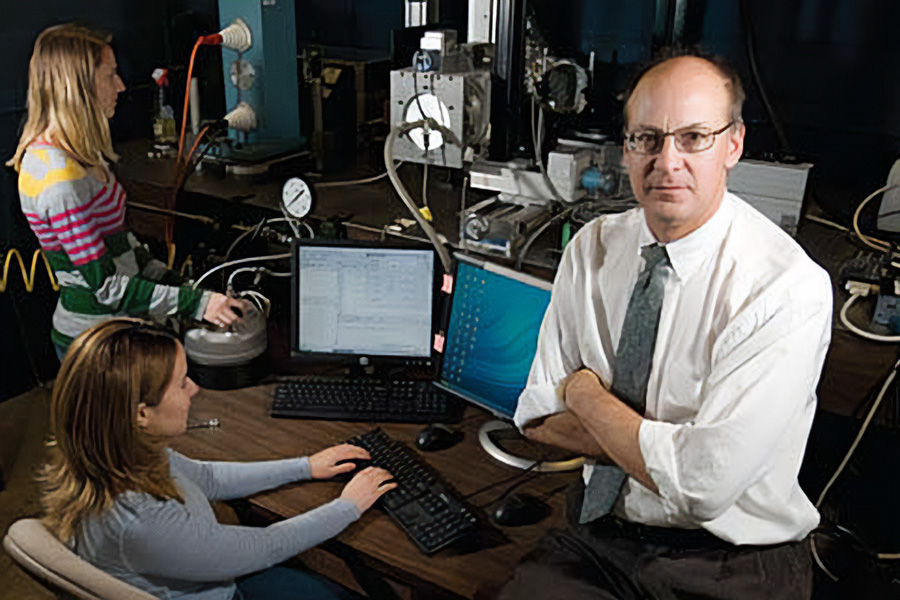Paul Sojka retires from Purdue

Originally from Michigan, Sojka attended Michigan State University as a physics student. He shifted his focus to mechanical engineering, and finished his MS (1978) and Ph.D. (1983) in mechanical engineering at Michigan State. He soon joined Purdue as an assistant professor, becoming associate professor in 1989, and full professor in 1999.
His research focus was on fluid mechanics; specifically, sprays and spray measurements. He said his work spanned from “dessert to defense” and “agriculture to airplanes.” His spray research focused everything from food manufacturing and pharmaceutical tablet coatings to agricultural pesticide applications.
Working mostly at Zucrow Labs, he studied sprays formed from rheologically complicated (non-Newtonian) fluids, in particular those for rocket injection; as well as super-critical spray formation for gas turbine and internal combustion engines. Mixing analytical, theoretical, and experimental work, his research group developed the experimental protocol necessary to make spray mass flow rate, patternation, drop size, and velocity measurements consistent.
Sojka is a Fellow of the American Society of Mechanical Engineers (ASME), and a member of the Institute for Liquid Atomization and Spray Systems (ILASS). He was chosen as a Purdue Provost Faculty Fellow in 2010. He enjoyed teaching Thermo I, Thermo II, and Fluid Mechanics, and developed his own graduate-level classes in Spray Application and Theory; for his teaching efforts, he received the Harry L. Solberg Teaching Award from the School of Mechanical Engineering in 1991. He has served as a visiting professor at the Technical University of Karlsruhe, Korea University, and a Faculty Fellow at Sandia National Laboratories.
He advised 53 master’s students, 18 Ph.D. students, and more than 70 undergraduate research projects. He had 87 peer-reviewed journal publications, and participated in more than 90 conferences worldwide.
Sojka credits his success to his ongoing intellectual curiosity and flexibility. “It’s not what you learn when you are a student,” he said, “but discovering how to teach yourself mastery of new topics in later life.”
Watch Dr. Sojka present a colloquium about his life and research:
